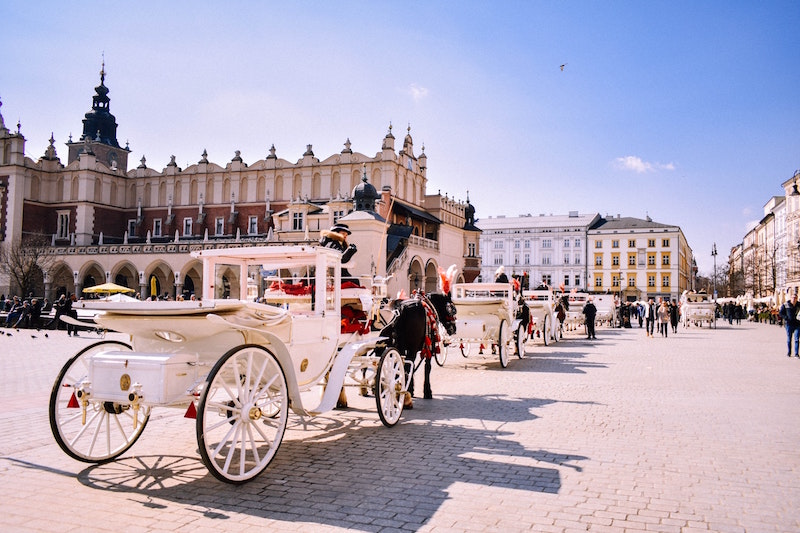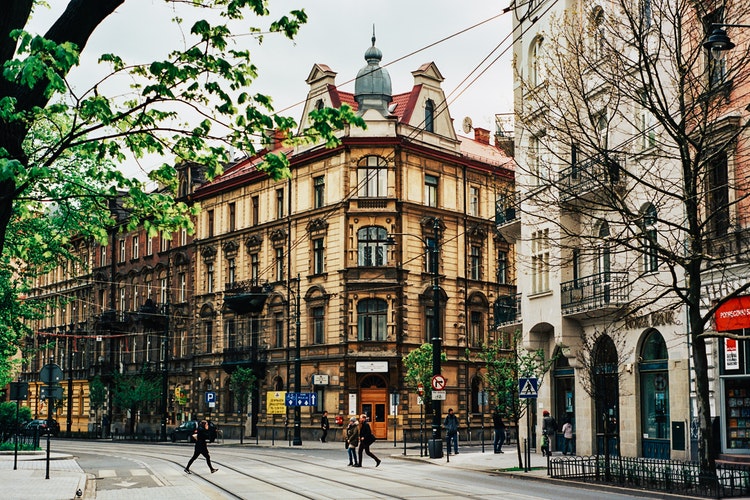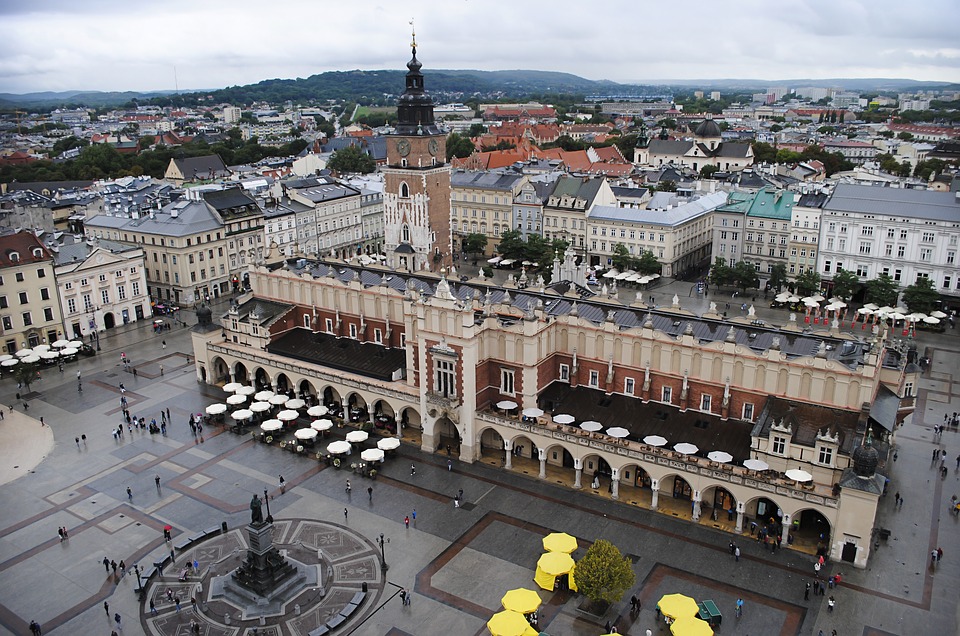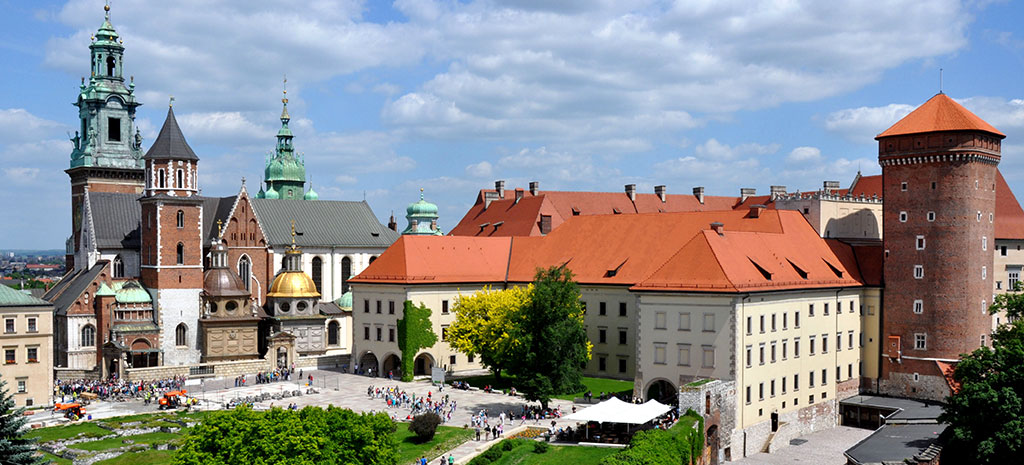
Study in Poland
Last edited on 23 Feb 2026
Welcome to Poland!
Poland is the place where you can earn a diploma that will open up doors to the best companies in Europe, and some of the best in the world. The country has many other perks, such as the fact that its medical schools are accredited in the US and that, while studying in Poland, you have access to the European Union’s study programs and are able to do internships or traineeships abroad. With top-quality, internationally recognized degrees, almost no other region in the world can set your career off to such a promising start. Do not forget that Poland has a favourable geographic location that has an excellent transport connection to the whole European Union at your fingertips! If you dream of going abroad and becoming independent while studying, do not worry about the cost, Poland is ideal for a student on a tight budget. Dormitories start from €60 a month per student, cinema ticket starts from €2,50, and lunch in the cafeteria starts from €2. No wonder Warsaw is the most affordable European student city according to the 2016 QS Best Student Cities index. There are more than 1.2 million students studying in Poland, at almost 380 universities. What is even more impressive most of the programs are offered in both Polish and English languages, on top of that, there are hundreds of languages that are taught here. There are a lot more colleges for arts as well as faculties of humanities and universities of technology, all of them equipped with ideal laboratories and super-computers.
Higher Education System
Poland was among 29 countries which signed the Bologna Declaration in 1999. Since then, many legislative changes have been introduced to adjust the Polish higher education system to the Bologna Process action lines. “Bologna tools” such as the three-cycle study system, ECTS and the Diploma Supplement are naw legally binding for all Polish higher education institutions. Currently, Poland is working towards the full
implementation of the National Qualifications Framework.
Students in Poland may study either at university-type institutions or at non-university higher education schools (which may not award the doctoral degree). Both types of HEls offer study programmes in various academic disciplines.
Number of Degree Programmes
Polish Higher Education lnstitutions offer more than 5000 courses taught in Polish language and mare than 850 courses taught in foreign languages (mainly English).
All courses in Polish are available on the website - www.wybierzstudia.nauka.gov.pl.
All courses in English and other foreign languages are available through «Study nder» tool on - www.go-poland.pl.
International Courses
Polish universities offer more than 850 courses in foreign languages
Universities in Poland
Student Cities in Poland
Warsaw
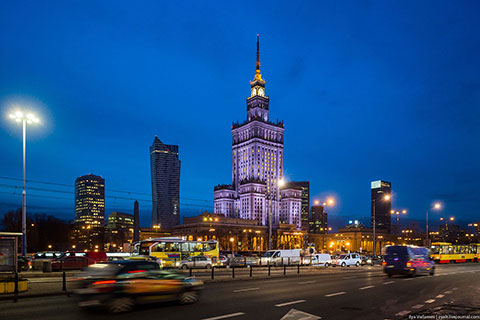
The capital of Poland, Warsaw is also the country’s largest city. It is situated close to the center of the country, on both sides of the river Vistula, and has a distinctive character and spirit. The city was almost completely destroyed during World War II, leading to a large-scale reconstruction project which aimed to recreate much of the original architecture. Its Old Town district, beside the river banks and popular among tourists, is a designated UNESCO World Heritage Site, celebrated as “an outstanding example of a near-total reconstruction of a span of history covering the 13th to the 20th century.”
Aside from its historic center, Warsaw also has a growing collection of skyscrapers, ranging from the residential Złota 44, completed in 2012, to the art deco-inspired Palace of Culture and Science, which dates back to 1955.
There are lots of universities and colleges to choose from in Warsaw, including Poland’s highest-ranked institution, the University of Warsaw, and Warsaw University of Technology, which also features in the QS World University Rankings. The city was a new entry in the QS Best Student Cities 2016 index at joint 63rd.
Krakow
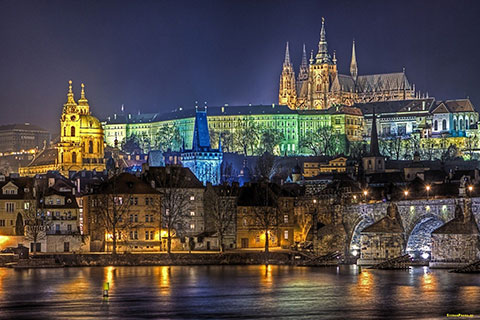
The second largest city in Poland, Krakow is located in the southern part of the country. It served as the Polish capital for five centuries, up to 1569, and remains a major economic, academic and cultural hub. One of the most popular destinations for visitors to Poland, it captivates people from around the world with its splendid historic architecture – which, in contrast to Warsaw, survived WWII largely intact. The city is in some respects an open-air museum of Polish heritage, from Europe’s largest medieval town square and the magnificent gothic Wawel Castle, to art nouveau-style bohemian cafés in which the country’s great artists and thinkers have gathered over the years.
There are about 20 universities and colleges in Krakow, of which just under half are publicly funded, including the oldest and second highest-ranked university in Poland, Jagiellonian University.
Lódź

The third largest city in Poland, Lódź is in the center of Poland, about 130km to the south-west of Warsaw. An important industrial center, particularly during the textiles boom of the 19th century, it’s sometimes nicknamed the “Polish Manchester”, in comparison to the UK’s textiles hub. Today, Lódź has lost its former industrial buzz, but continues to be an attractive business center, due to its central location, good connections and proximity to the capital. Attractions enjoyed by visitors and residents include a good selection of galleries and entertainment venues, and one of the longest commercial high streets in the world. The city is also home to a good selection of higher education institutions, including Poland’s fourth entry in the QS World University Rankings, University of Lódź. Lódź is also EXPO 2022 candidate city.
Other leading university cities include, but are not limited to Wrocław, Poznań, Gdańsk and Toruń, the UNESCO World Heritage gothic town filled with academic vibes, where famous astronomer Nicolaus Copernicus was born.
Application, Fees and Visas in Poland
For more information please visit https://study.gov.pl/visa-application
Tuition Fees
Full-time studies (in the Polish language) at the state Higher Education lnstitutions (HEls) are free for Polish students and foreigners who commence studies in Poland on terms applicable to Polish citizens. These include citizens of the EU/EEA and students who hold the Polish Card (Karta Polaka). All other foreigners are required to pay tuition fees that on average are the following:
- EUR 2000 per year for first, second and long-cycle studies,
- EUR 2000 per year for an annual preparatory Polish language course to commence studies in Polish.
Fees at public and non-public HEls are established by the institution itself under the condition that they can not be lower than the costs of education process. The tuition fees range from EUR 2000–6000 per year and depend on the institution and study program (for MBA programs: about EUR 8000–12000 per year).
Scholarships
There are many scholarships available within limits defined in bilateral agreements. They are financed either by the Polish or the foreign partner's government, often within the aim to enhance exchange within a specific field of study. The amount of a scholarship depends on the type of research undertaken. More detail: https://study.gov.pl/scholarships
Living Cost
Living in Poland as a student is relatively affordable compared to other European Union countries. The cost of living for students can start from 1500 PLN (330 EUR) a month. However, the prices depend on the city you are currently living in. Living in the capital and tourism city might be slightly expensive than other Polish big cities. On this page, you will find out how much it costs to live in Poland for a month. Please remember, that to be able to study in Poland non-EU/EEA students have to possess sufficient means to cover the living costs.
Work
All full-time students who possess a student visa or a temporary residence permit, EU/EEA citizens and holders of the Polish Card are eligible to work in Poland and do not need to apply for a work permit.
Fast Facts:
Poland is the 6th largest country and 8th largest economy in the EU
One of the fastest growing economies in the EU
More than 400 higher education institutions (330 of them hold the Erasmus University Charter);
Here, we give you reasons why Poland should own the first place of your destination country list for study. Tradition: Longstanding traditions in the higher education sector, with the first university in Poland founded in 1364. With a history dating back which Poland already teaching students for over 650 years, Poland’s cultural heritage is incredibly rich.
Today, 46,000 international students choosing to study in Poland (2014-2015). Competitive cost of living and studying: Relatively low living costs, which remain below those of most EU members. In a matter of fact, with only 3000 Euro tuition fee per year plus 250 Euro per month for living cost become the appealing aspect for many of those who choose to study in Poland. Poland offers scholarships to students funded by the government, various foundations and the higher education institution or universities themselves. They are available to in-country students, disabled applicants as well as to international students both from within the EU or non-EU. The high number of institutions that offer scholarships and their fluid availability added the uniqueness of this country.
Stefan Banach Scholarship Program
Focus Scholarship: Master and PhD
Competition: Developing Countries
Scholarship Coverage: Partial Scholarship
This year, the existing scholarship programmes that are a joint initiative of the Ministry of Foreign Affairs and the National Agency for Academic Exchange NAWA in the form of Polish development aid, i.e. the Banach Scholarship Programme and the Lukasiewicz Scholarship Programme, are merged into one scholarship programme for young people from developing countries who wish to take up studies in Poland.
The objective of the Programme is to promote socio-economic progress of developing countries by raising the level of knowledge and education of their citizens in the form of scholarships for second-degree studies in Polish or in English at Polish universities supervised by the Minister of Education and Science in the field of engineering and technical sciences, agricultural sciences, exact sciences, and life sciences.
The NAWA scholarship may be applied for by citizens of the following countries: Albania, Angola, Argentina, Armenia, Azerbaijan, Belarus, Bosnia and Herzegovina, Brazil, Colombia, Ethiopia, Georgia, India, Indonesia, Iraq, Iran, Jordan, Kazakhstan, Kenya, Kosovo, Lebanon, Mexico, Moldova, Montenegro, Nigeria, North Macedonia, Palestine, Peru, the Philippines, Senegal, Serbia, South Africa, Tanzania, Tunisia, Ukraine, Uzbekistan, and Vietnam.
In addition, the citizens of Albania, Armenia, Azerbaijan, Belarus, Bosnia and Herzegovina, Georgia, Kazakhstan, Kosovo, Montenegro, Moldova, North Macedonia, Serbia, Ukraine, and Uzbekistan can complete second-degree studies in the fields of humanities and social sciences under the Programme, with the exception of philological studies in the field of the beneficiary’s native language.
Criteria
- Master degree application should be sent to Embassy of the Republic of Poland in Jakarta while the PhD application should be sent directly to targeted university






